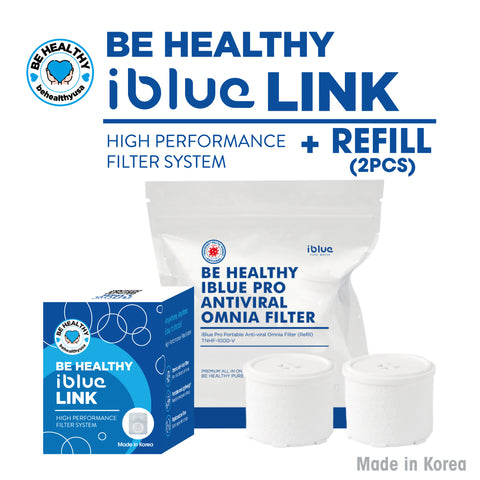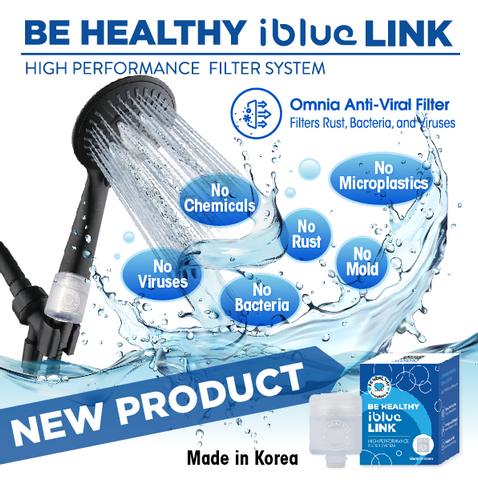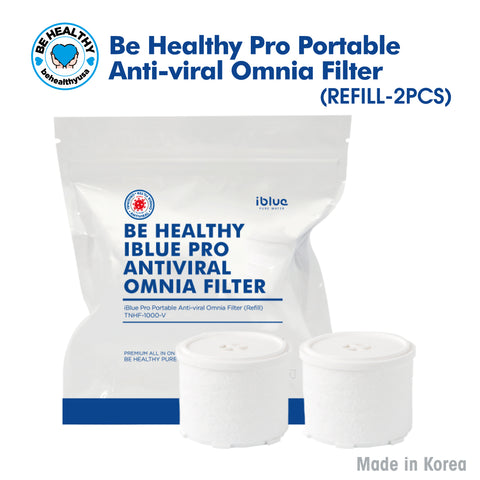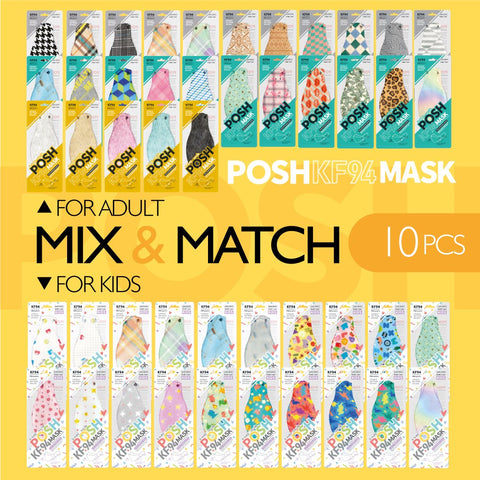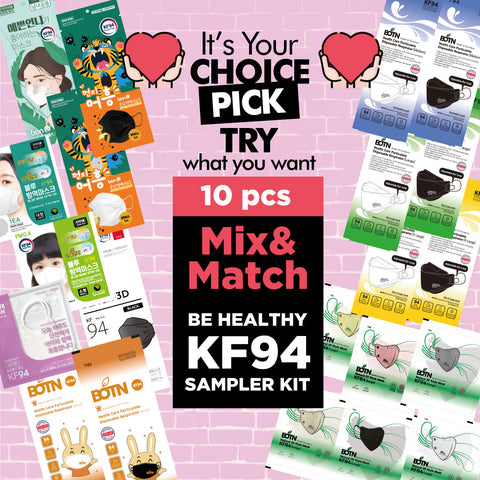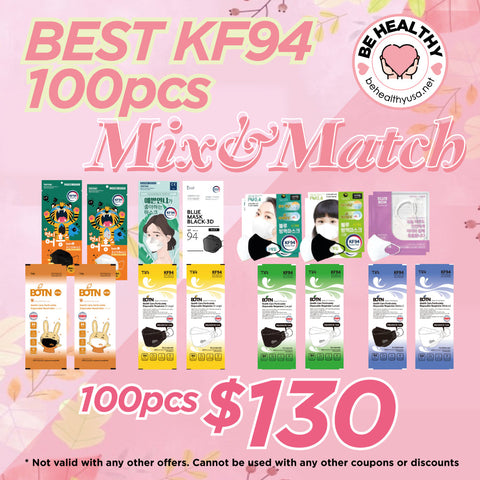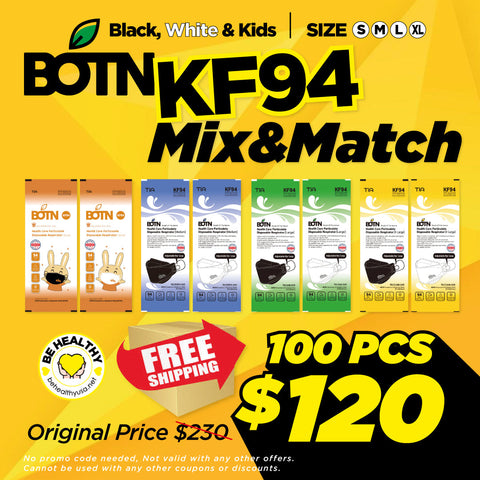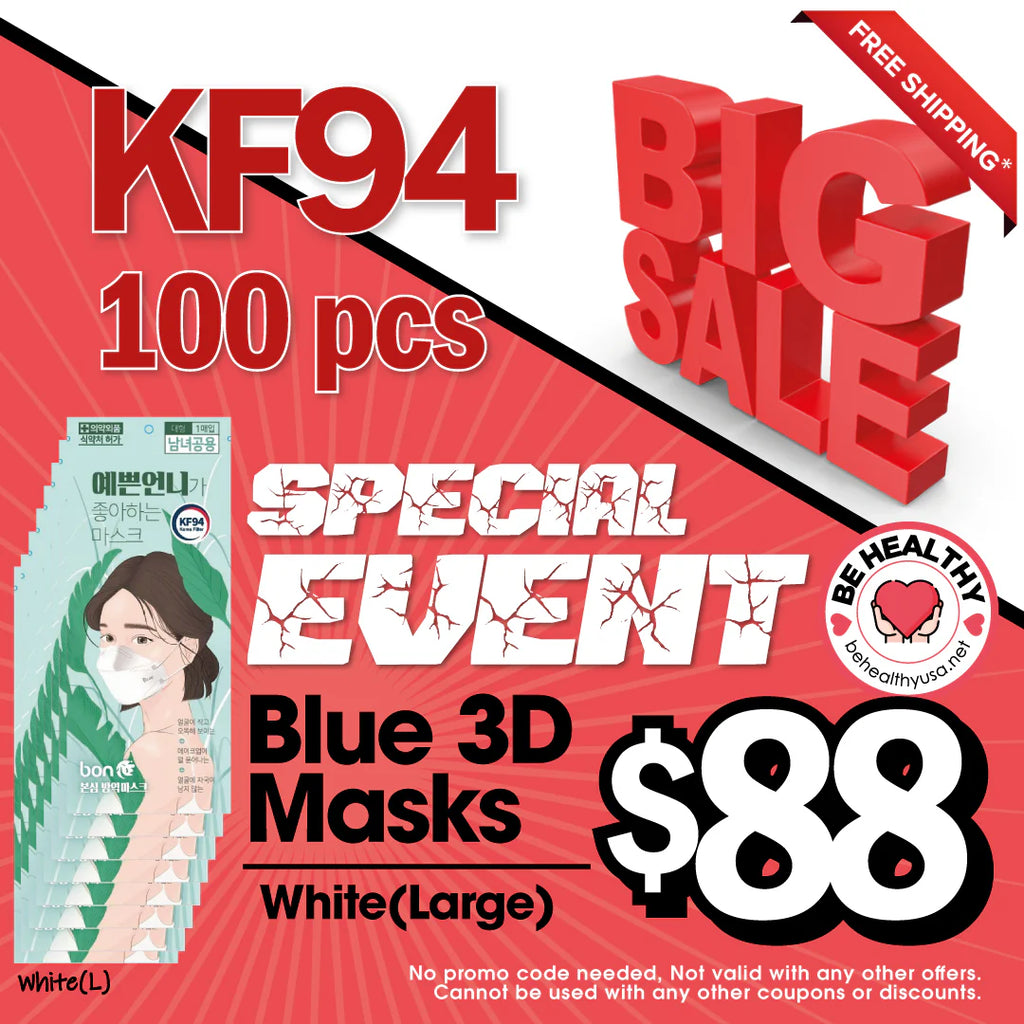KF94 masks vs. N95 masks

KF94 masks vs. N95 masks
What’s the Difference?
As Covid infection rates rise and new variants of Covid are being discovered, the significance of wearing effective face masks cannot be overstated. Two highly regarded options in the market are the N95 masks and KF94 masks, both known for their superior filtration capabilities. It’s essential to understand the differences between these two mask types and make informed choices to protect ourselves and those around us.
Filtration Efficiency:
N95 masks and KF94 masks are designed to filter out airborne particles, including viruses and bacteria. The "N95" designation refers to the National Institute for Occupational Safety and Health (NIOSH) certification standard in the United States, indicating that the mask filters at least 95% of airborne particles. On the other hand, "KF94" refers to the Korean Food and Drug Administration (KFDA) certification standard, indicating a filtration efficiency of at least 94%. KF94 masks have also been tested to perform higher than the 94% minimum set by the KFDA and have been tested to filter up to 99%. Both offer comparable filtration rates.
Fit and Seal:
The effectiveness of any mask hinges on its ability to create a proper seal on the wearer's face. N95 masks are renowned for their snug fit, as they are tested to ensure a secure seal that minimizes leakage around the edges. Due to this meticulous fit N95 masks need to be professionally fitted to ensure that a proper seal is made. Therefore, is used in professional and medical fields and is used for hazardous environments.
KF94 masks, however, are designed to be used by the public and are used commercially. KF94 masks are offered in various sizes and feature various adjustment tools that provide ease of use. All KF94 masks have an adjustable nose wire that can be molded around the bridge of your nose. Such brands as BOTN and POSH offer adjustable ear loops that can be used to tighten the mask around your face for a proper seal.
Ease of Breathing:
A common concern among mask wearers is the ease of breathing, especially during prolonged use. N95 masks are slightly more difficult to breathe through due to their high-filtration materials. This can be a concern for individuals with respiratory issues or those engaged in strenuous activities while wearing the mask.
KF94 masks, designed with a similar focus on filtration, might offer a more comfortable breathing experience for some wearers. The structure of the mask is also designed where the mask is away from your lips, which leads to an easier breathing experience.
Availability and Accessibility:
The availability of N95 masks, particularly during periods of heightened demand, has been a challenge in some regions. KF94 masks, however, are more accessible as they are produced for public use. This accessibility factor could influence the decision-making process for individuals looking to acquire effective face protection.
Cultural and Stylistic Factors:
In some cultures, wearing a mask is not only a protective measure but also a fashion statement. KF94 masks like the POSH brand masks offer a variety of colors and designs without sacrificing the safety aspect. These KF94 masks allow individuals to express themselves while adhering to safety protocols. The N95 masks are not able to be made in different colors or patterns.
In conclusion, both N95 masks and KF94 masks offer significant protection against airborne particles. N95 masks excel in filtration efficiency and airtight fit, making them a top choice for healthcare professionals and high-risk environments. KF94 masks provide a more comfortable breathing experience and are more accessible in some areas. The decision between these two masks depends on factors such as filtration needs, fit, accessibility, and personal preferences. Regardless of the choice, the key takeaway is the importance of consistent mask usage to safeguard public health.





